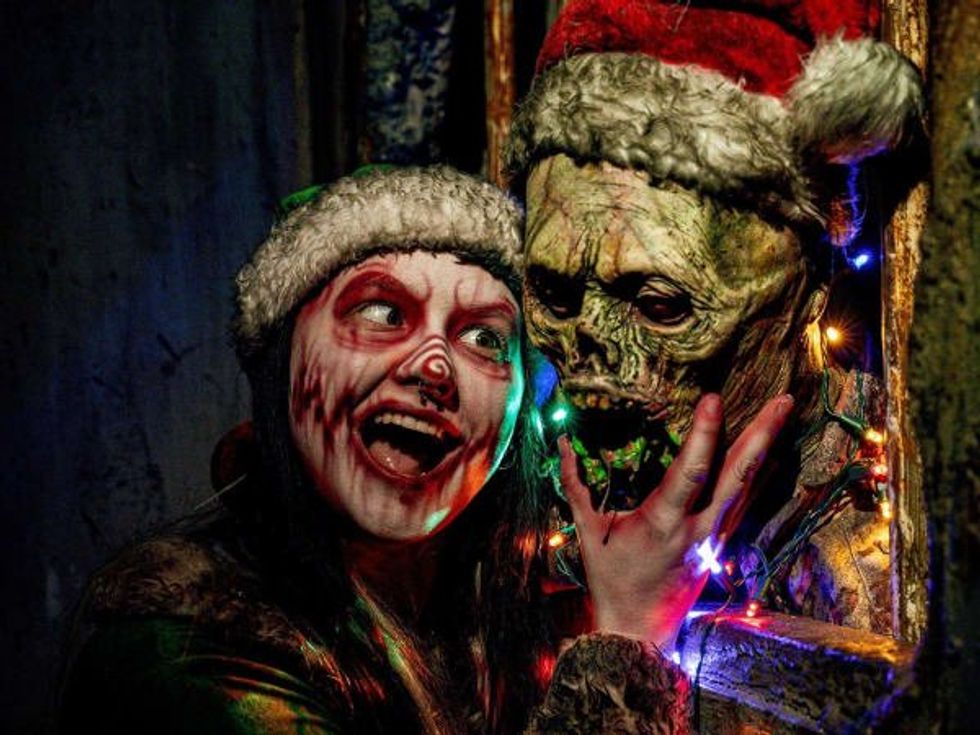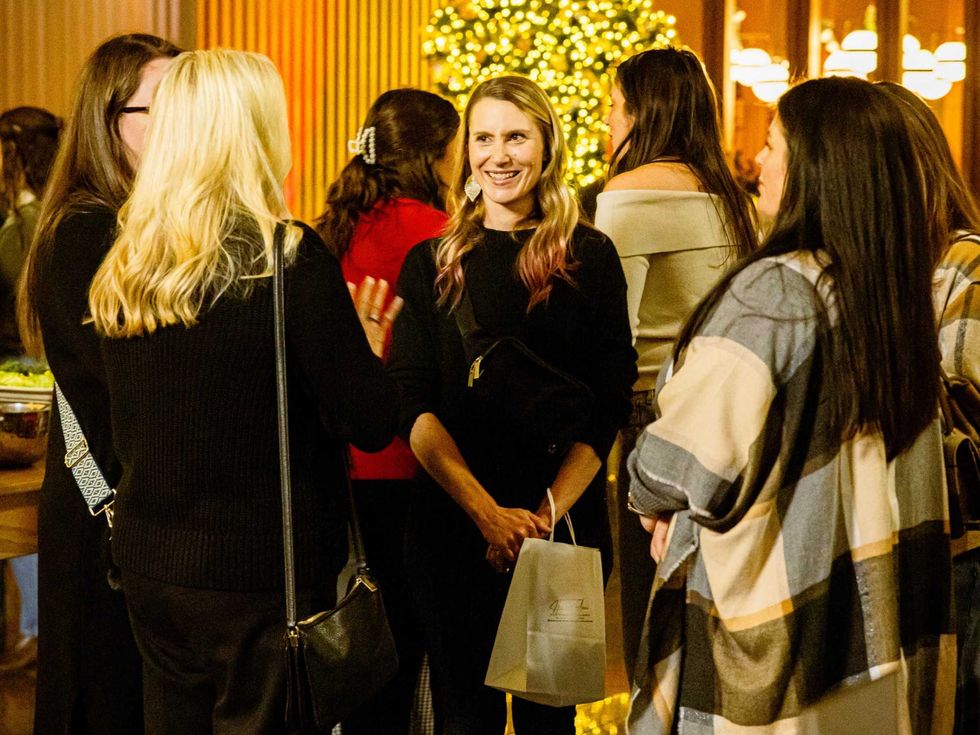moontower comedy interviews
Talking to W. Kamau Bell, part two: Why he's googling "Austin + racism" beforehe comes to the Moontower Comedy Festival
In part one of our interview with San Francisco-based comedian W. Kamau Bell, who’s playing the Moontower Comedy and Oddity Festival, he talked about why Rick Santorum might as well be praying to his Dungeon Master’s Guide and how he’s become a highly unlikely talk show host. In part two, here’s what he has to say about what you say when Chris Rock calls you up out of the blue and why he plans to google “Austin + racism” before he comes to town.
---
Chris Rock is producing your forthcoming FX show. Let’s talk about how you got hooked up with him.
I had heard through the comedy grapevine that he thought I was funny, and that was one of those things — "That plus two dollars will get me on the bus." But in October of 2010, I think it was, I was doing my show at the UCB Theater in New York and at the end of show, I see my manager was backstage with this weird look on her face and I was like, "What's wrong with Carrie?" And then right behind her is a man dressed in all black and it's Chris Rock.
I didn't know he had been there — he apparently snuck in after the start like people of that nature do. It was very much like, "Yeah, it was funny," But it wasn't like he said, "You were the best I've seen." It was like, "Yeah, you're funny." For him, telling someone “you're funny,” it's not a magical thing to him. But he was like, "Yeah, you're funny and I don't think a lot of people are funny," so I was like, "Thanks!"
"I picked up the phone and the voice said, 'This is Chris Rock,' and I said, 'No it's not,' and he said, 'Don't be the guy who doesn't believe it's me when I call you.'"
I was flattered and everyone was really excited about it. Then, two months later, I got a phone call from an unknown number and I picked up the phone and the voice said, "This is Chris Rock," and I said, "No it's not," and he said, "Don't be the guy who doesn't believe it's me when I call you," and I went, "Oh, this is actually Chris Rock." And from that point he was like, "I wanna help you get a TV show." "Thank you, sir."
There was no way I was gonna get a TV show unless Chris Rock decided to help me get a TV show. I wasn't on that path. I was happy on the path I was on. I didn’t pursue the labels of “political” and all these things, they’ve sort of been laid upon me.
But part of the challenge, that you asked about earlier, of being a comedian who's so... I just happened to come from the school of comedy where you only talk about the things you're actually fired up about. I think Brian Regan is hilarious, let me say that, and I think Mitch Hedburg was a genius, but personally when I'm onstage I can only talk about the things that fire me up and it just so happens that those things tend to be about race, politics and religion.
I was fine when I would get asked to submit tapes to late night talk shows or Comedy Central. They would ask, “Do you have anything that's not political or racial or about religion?” I'd be like, “No.” [Laughs] 'Cause even now, I have a kid and my jokes about my kid are about race. I happen to see things through the lens of identity politics, so whenever I try to write a joke about how me and my wife got in a fight about the remote control it's just like, shut up. That's me telling myself to shut up, and it's not that I don't think there are good jokes there, they're just not for me to write.
I think there are comics who are doing a great job with that kind of material, and that's not what my strength is. Making the choices I've made had firmly ensconced me in the underground up until Chris Rock decided to help me get a TV show. And even he said, “I'm gonna have to help you because you're not going to be able to pull this off on your own. Because I'm honest in that way.” And I said, “Thank you.”
During a primary season like we’ve been in, how much new material are you able to generate?
I write a lot, but you can't write fast enough. The thing I'm looking forward to about having the show is that there's a lot of times I'll write a joke and if I'm not onstage that week, it's like, "Ah I missed it — I can't do it now! It's over!” So I'm glad that I'll be able to do those jokes that you write, like one great joke for one great week and you can do it on television in front of everybody. I'll feel confident that the most number of people who've ever seen me perform will see it, and then we can move on.
"You have to be some sort of cultural anthropologist to figure out how to be black in America or how to be not a white man in America."
Let’s talk about The W. Kamau Bell Curve: Ending Racism In About An Hour. How often do you update the material?
It's updated a lot. There's sort of a structure to it, but it's made so you can pull things out and put things in. I created it that way because the whole point of ending racism is that I can't be talking about ending the racism from a year ago. I gotta be talking about the racism now. Because of the primary season and the state of the world — there's a lot of racism out there!
There will be a lot of stuff that I do in Austin that I won't have done anywhere else, because I like to turn stuff over. I also like to go into a place, pull the Wikipedia page for Austin and I'll Google things like “Austin plus racism” and I'll try to find if there’s anything going on specific to that area because I like the show to be personal to the place.
Is this an unusually bad time to be a person of color in America, do you think?
In general, as a black person, it's hard to say that this is the worst time to be a black person because the further you go back in time, it gets worse and worse and worse.
For example, I like the fact that I'm not owned by anybody. I find that to be pretty good. There's always a fight, and what sucks is that the fight gets uglier and more insidious, not as obvious. When you were owned by a guy, you knew what the fight was: “I gotta get un-owned.” That was the fight.
But now, I feel like people are treating me badly because I'm black but I can't really tell because they're not saying it out loud. If Santorum had the courage to say “Obama, the government nigger,” it would be like, thank you for at least being honest with what you believe. But now it's this weird thing where it's like, I think he doesn't like black people, but he won't say it directly. But I'm pretty sure because he doesn't have a lot of black people around him.
You have to be some sort of cultural anthropologist to figure out how to be black in America or how to be not a white man in America. It's the same with women — I think women and black people have a similar struggle and I think black women have that struggle twice. If women and black people and undocumented workers and trans people and gay people, if we all got on the same side, there's tons more of us than there are of the other people.
Sometimes we fight our battles individually, and we need to find a way to pull it all together. And that's hilarious. [Laughs] Now we'll sing kumbaya. The article will end with choruses of kumbaya.
---
W. Kamau Bell (and 70+ other comics) will be performing at the Moontower Comedy and Oddity Festival April 25 - 28. Single performance tickets and festival passes are available now.



